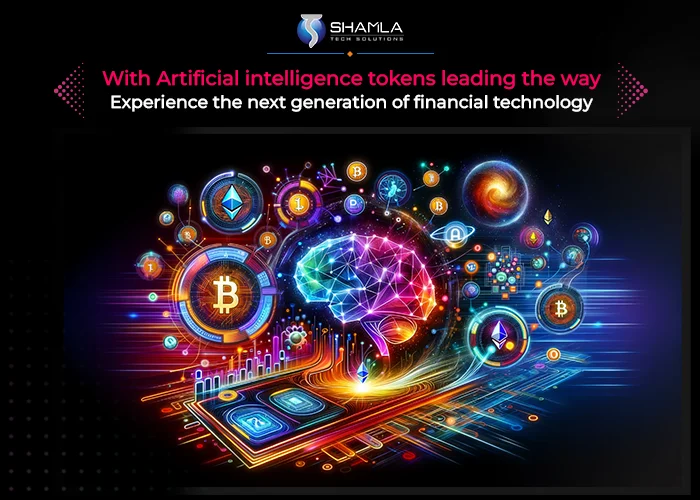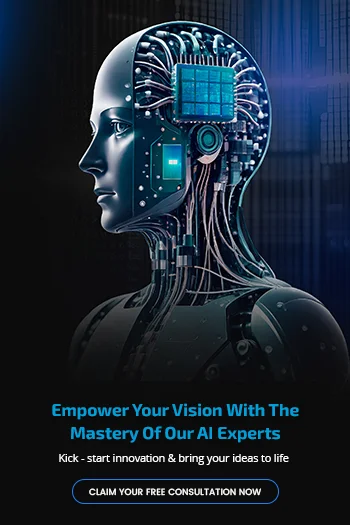Generally speaking, cryptocurrencies display the following traits:
- Decentralized, or at minimum independent of a centralizing issuing body. Rather, the management of transactions and issuance of cryptocurrencies is done by code.
- based on Distributed Ledger Technology (DLT), such as a blockchain, which enables users to automatically and anonymously enforce the system’s regulations.
- employs cryptography to protect the network infrastructure and underlying structure of cryptocurrencies.
What is a Crypto Token?
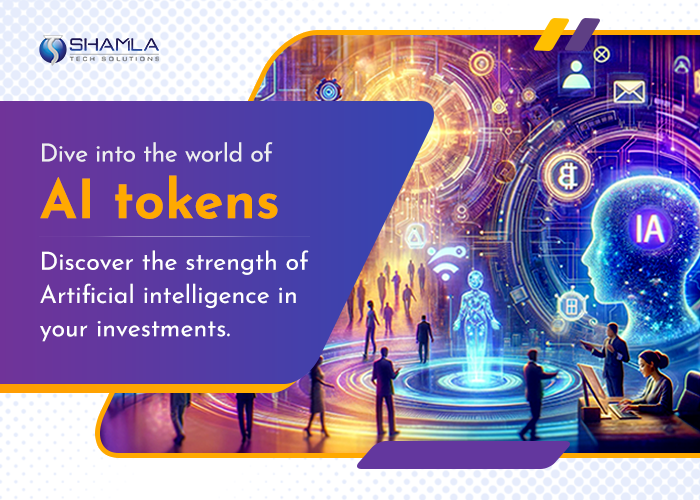
What are Artificial Intelligence Tokens?
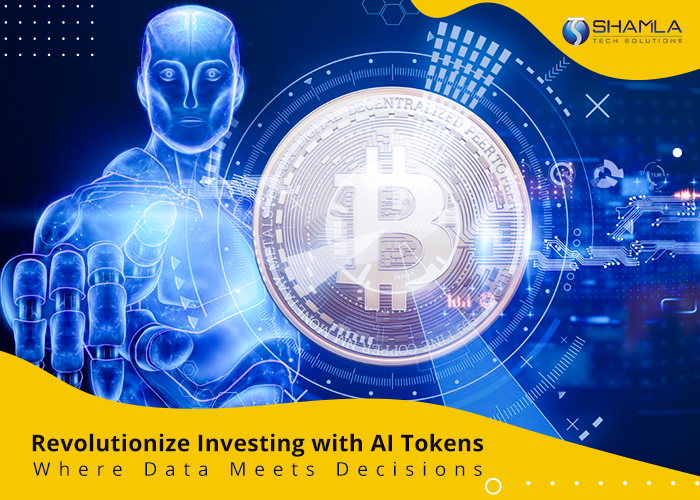
How Artificial Intelligence Tokens work?
Evaluation of Risk : Any trading endeavour involves risk, and cryptocurrencies powered by artificial intelligence (AI) employ historical and real-time data to evaluate risk factors. This assessment aids in the modification of trading strategies to bring them into compliance with reasonable risk criteria.
Execution of Smart Contracts : Smart contracts are used by AI cryptocurrencies to ensure trade autonomy, security, and transparency. These self-executing contracts are programmed with predetermined rules, and trades are executed automatically when certain conditions are satisfied.
Monitoring in Real Time : The AI system continuously monitors the performance of the portfolio and the situation of the market as transactions are executed. This vigilance allows for swift adjustments in the event of unexpected market moves.
Assessment of Performance : A component of post-trade analysis is evaluating the outcomes of completed trades. The AI system closely studies its successes and setbacks so that it can learn from the past and modify its strategy accordingly.
Tokenization of AI Tokens
Decentralised Marketplaces for AI :
Decentralised artificial intelligence marketplaces are virtual shops where individuals or companies can trade AI tokens for models, data, or services. The aforementioned markets aim to eliminate intermediaries, provide transparency, and encourage collaboration between AI developers and users. Users may profit by selling tokens to the market by offering their data, algorithms, or computational power.
AI Model Training and Data Sharing:
Training AI models requires a large computational footprint. People can be encouraged to donate their computer power or data sets for AI training by offering tokens for AI. By rewarding participants with tokens, AI projects can have access to a greater range of resources and potentially accelerate the development of state-of-the-art AI models.
Consensus And Governance
AI tokens can potentially be used for consensus and governance inside AI initiatives or communities. Token holders may be given the ability to vote on proposals for changes, additions, or alterations to the AI ecosystem. This ensures that decisions are made decentralised, considering the interests of the community.
Obstacles And Things To Take Into Account
Although the concept of AI tokens has potential, there are some disadvantages that need to be considered. Ensuring the quality and reliability of AI models available in markets, addressing prejudice and ethical concerns with AI, and creating a secure and expandable blockchain infrastructure are all crucial elements.
Top AI Tokens
The Graph (GRT): A protocol called The Graph allows data from blockchains to be indexed and queried in a manner akin to how Google indexes and queries data from webpages. Blockchain data can be difficult to index, but The Graph seeks to solve this problem by breaking up the data into smaller “subgraphs.”
At the time of writing, the value of its native cryptocurrency, GRT, which is based on Ethereum, was approximately INR 6.88, having peaked at approximately INR 205.68 in February 2021.
SingularityNET: With the use of the blockchain network SingularityNET, anyone may create, distribute, and profit from AI services. Users can peruse and pay for AI services in the platform’s native cryptocurrency, AGIX, in its internal marketplace.
Without having to completely create applications for end users, developers can profit from AI models and solutions. In a similar vein, programmers may purchase AI models and solutions to incorporate into their apps.
At the moment, AGIX is valued at about INR 13.77. AGIX reached its highest point in January 2018 at about INR 131.91.
Fetch.ai: Fetch.ai is a blockchain-based AI and machine learning platform. The main goal of Fetch.ai is to automate corporate processes, including trading and data processing. FET, the network’s native coin, is used to fund transactions.
FET’s value decreased from its peak of approximately INR 85.64 in September 2021 to around INR 18.70 at the time of writing.
Ocean protocol: Ocean Protocol is a platform built on the Ethereum blockchain that enables companies and individuals to trade and profit from data and data-driven services. This might entail providing researchers and startups with access to data without requiring data holders to give up their rights.
After peaking at over INR 139.82 in April 2021, OCEAN is currently trading at about INR 19.69.
iExec RLC:
An AI blockchain platform called iExec enables users to access on-demand cloud computing resources and make money off of their computer power.
The native cryptocurrency of iExec, RLC, is utilised to cover platform service costs. RLC hit an all-time high of about INR 984.90 in October 2021, and it is currently trading at about INR 128.03.
Numerai:
As a hedge fund, Numerai is an AI blockchain network that makes investments in international stock markets through machine learning and artificial intelligence.
The native money of Numerai, called Numeraire (NMR), makes network payments easier. It peaked in 2017 at about INR 13,004.49, and is presently trading at about INR 1,302.40.
dKargo: A blockchain called dKargo employs AI to address trust concerns in the logistics industry. This is accomplished by giving participants reliable data, which is made possible by blockchain technology’s irreversible nature.
The value of DKA, the native token of Kargo, has decreased to about INR 1.97 from about INR 53.19 in the winter of 2021.
Phala Network: Another blockchain technology enhanced by AI for cloud computing, Phala Network focuses on privacy. It is marketed as a decentralised substitute for well-known cloud computing providers like Google Cloud and Amazon AWS.
Phala Network cloud services are paid for with PHA, the native currency of the network. It peaked in May 2021 at about INR 98.49, and it is presently trading at about INR 10.83.
Cortex: An artificial intelligence model can be uploaded and run on the blockchain platform Cortex. The concept is that decentralised apps (dApps) and smart contracts can both benefit from AI integration.
As of the time of writing, CTXC was worth about INR 20.69. It was trading for about INR 147.79 in May of 2018.
*Market capitalization numbers current as of March 6, 2023.
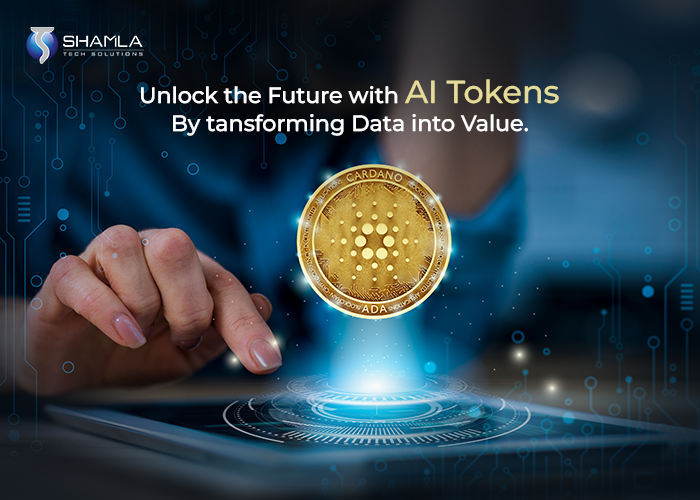
Ethical considerations surrounding AI Tokens
The broader use cases for blockchain technology and AI, as well as the ethical implications of AI currencies, are critical. Being open and responsible is crucial, which necessitates complete disclosure of all information regarding how AI operates, renders decisions, and handles data.
Maintaining data privacy is essential; in order to prevent misuse, user data should only be collected with consent, maintained safely, and used responsibly. It is necessary to continue researching the possibility of prejudice in AI systems since biases in training data could lead to biassed outcomes.
It’s also critical to carefully evaluate how AI currencies will alter present labour markets and employment patterns in order to ensure that technological advancements benefit society without causing undue disruption.
Following legal and regulatory frameworks is essential as a last line of defence against any legal ambiguity or violations. As the use of AI coins increases, stakeholders will need to address these moral dilemmas to enable responsible development and application in a constantly evolving technological landscape.
Potential of AI Tokens
- Corruption in the bitcoin market might be controlled by utilising an AI algorithm in combination with technologies for identifying or preventing it. Artificial Intelligence has being applied more in the banking industry to counteract real-world financial misconduct. A poll conducted by NVIDIA predicts that 10% of financial users would employ AI-based anti-corruption technologies in their companies by 2021.
- The danger associated with investors making haphazard investments would be reduced by using AI to create simulations for estimating the value of digital assets.
- Reducing the involvement of people as the medium in order to increase the efficacy of blockchain’s decentralisation.
- Lowering the likelihood of financial loss by helping users make wiser selections.
- Letting AI assess the state of a particular digital asset based on opinions expressed by the public.
- AI may be incorporated into government policy to control the digital asset tax and prevent money laundering.
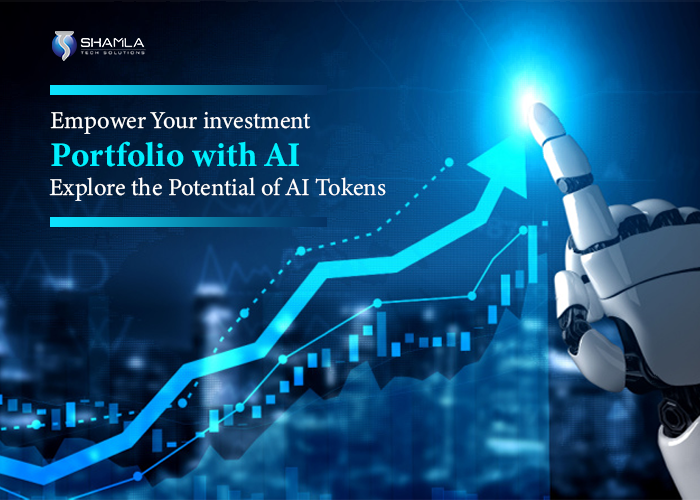
Conclusion
In the future, there could be more fascinating integrations between blockchain and AI with AI tokens. It’s likely that these tokens will play a major role in facilitating decentralised AI networks and the seamless interchange of AI services and data.
As AI algorithms get increasingly complicated, AI tokens may encourage innovation by compensating customers, data providers, and developers of AI software.
Ethical concerns including accountability, transparency, data privacy, and bias reduction must be addressed in order to facilitate the ethical and equitable development of AI tokens. Combining blockchain with AI has the potential to change industries, enhance automation, and provide new job opportunities.

